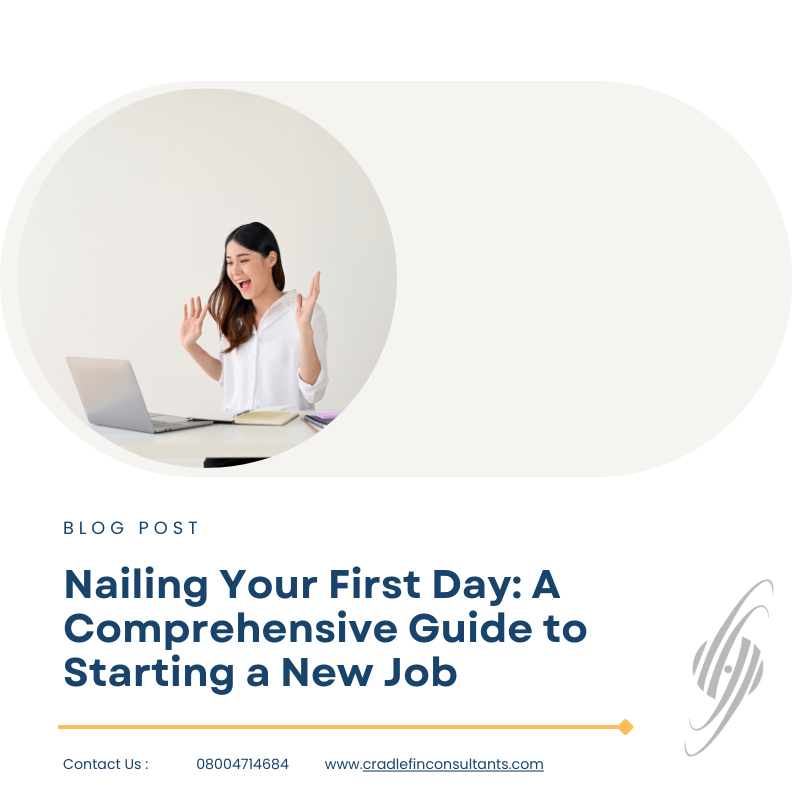The UK Medical and Health Sector is a dynamic and ever-evolving field that plays a crucial role in ensuring the well-being and healthcare needs of the population. This article provides a comprehensive overview of the sector, highlighting various aspects of career progression within it. From educational pathways and training requirements to specialisations and professional development opportunities, healthcare professionals in the UK have a wide range of options to shape their careers.
Additionally, we will explore the challenges and strategies for career advancement, emerging trends in the industry, and showcase success storeys and role models that inspire others in the field. Whether you are a medical student, a nurse, an allied health professional, or simply interested in the UK healthcare sector, this article will serve as a valuable resource for understanding and navigating career progression in this rewarding field.
1. Overview of the UK Medical and Health Sector
1.1 Introduction to the UK Medical and Health Sector:
The UK medical and health sector is a dynamic and vital industry that encompasses a wide range of professions dedicated to providing healthcare services to the population. It includes doctors, nurses, midwives, allied health professionals, and various support staff. With a strong focus on quality care and patient well-being, this sector plays a crucial role in maintaining and improving the nation’s health.
1.2 Importance of Career Progression in the Sector:
Career progression is of utmost importance in the UK medical and health sector as it fosters professional growth and ensures the delivery of high-quality care. Advancing in your career not only allows you to gain expertise and expand your skill set but also opens up opportunities for leadership roles and increased responsibilities. Moreover, career progression often correlates with personal fulfilment and job satisfaction, making it a key aspect to consider for professionals in this field.
2. Educational Pathways and Training Requirements
2.1 Undergraduate Medical Education:
To pursue a career in medicine, aspiring doctors must first complete an undergraduate medical degree, typically lasting five to six years. This includes both classroom-based learning and clinical training, providing a solid foundation in medical knowledge and practical skills.
2.2 Postgraduate Medical Education:
After completing their undergraduate degree, doctors undergo further training through postgraduate medical education. This includes speciality training programmes, known as residency or registrar training, where doctors specialise in a specific area of medicine. The duration of these programmes varies depending on the speciality, ranging from three to seven years.
2.3 Other Health Professions and Training Programmes:
Apart from medicine, the UK medical and health sector offers diverse career pathways in other health professions. Nurses, midwives, and allied health professionals, such as physiotherapists, radiographers, and occupational therapists, follow distinct educational routes tailored to their respective professions. These often involve a combination of academic study and practical training, leading to recognised qualifications.
3. Specialisations and Career Options
3.1 Medical Specialities:
The medical field offers a wide array of specialisations, enabling doctors to focus on specific areas of healthcare. Cardiology, pediatrics, orthopaedics, and psychiatry are just a few examples of the numerous medical specialities. Specialisations allow doctors to develop expertise in their chosen field, leading to important advancements in patient care and treatment.
3.2 Nursing and Midwifery Specialisations:
Nursing and midwifery professions also offer various specialisations, including paediatric nursing, mental health nursing, and critical care nursing. Midwives can specialise in areas such as antenatal care, high-risk pregnancies, or neonatal care. These specialisations provide nurses and midwives with opportunities to deepen their knowledge and provide specialised care to patients.
3.3 Allied Health Professions and Specialisations:
Allied health professions encompass a range of healthcare roles, including physiotherapists, occupational therapists, radiographers, and speech and language therapists. Within each profession, there are further specialisations available. For example, physiotherapists can specialise in musculoskeletal physiotherapy, sports rehabilitation, or neurology. These specialisations allow allied health professionals to focus on specific areas and provide specialised treatments.

4. Professional Development Opportunities
4.1 Continuous Medical Education (CME):
Continuing professional development is essential for professionals in the medical and health sector to stay up to date with the latest advancements in their field. Continuous Medical Education (CME) programmes offer opportunities to enhance knowledge, skills, and clinical practise. These programmes can involve attending conferences, workshops, seminars, or undertaking online courses to broaden professional horizons.
4.2 Professional Associations and Networking:
Joining professional associations and engaging in networking activities can be beneficial for career progression. These platforms provide opportunities to connect with colleagues, share knowledge, and stay informed about industry trends. Professional associations often organise conferences, seminars, and webinars, allowing professionals to enhance their skills and expand their professional network.
4.3 Research and Publications:
Engaging in research and contributing to publications not only helps to advance the medical and health field but can also enhance career prospects. Conducting research or publishing articles in medical journals showcases expertise and dedication to professional development. This can open doors to new opportunities and collaborations, furthering career progression within the sector.
In conclusion, the UK medical and health sector offers diverse career opportunities for professionals seeking to make a difference in healthcare. By pursuing educational pathways, specialising in specific areas, and actively participating in professional development, individuals can advance their careers and contribute to the ongoing improvement of healthcare services in the UK.
5. Advancement and Promotion in the Field
5.1 Opportunities for Career Advancement:
In the UK medical and health sector, there are numerous opportunities for career advancement. Whether you’re a doctor, nurse, allied health professional, or in a support role, the field offers various paths to progress in your career. You can seek higher-level positions within your speciality, such as becoming a consultant or a specialist nurse. Additionally, there are opportunities to move into leadership and management roles, research and academia, or even venture into entrepreneurship in healthcare.
5.2 Leadership and Management Roles:
For those interested in taking on leadership and management positions, the medical and health sector provides ample opportunities. As you gain experience and develop your skills, you can transition into roles like clinical director, department head, or service manager. These roles allow you to have a broader impact by shaping policies, driving innovation, and leading teams. Effective leadership and management are crucial for the success of healthcare organisations, and individuals with strong leadership abilities are highly valued in the field.
5.3 Recognition and Accreditation:
In the UK medical and health sector, recognition and accreditation play a vital role in career progression. Achieving professional qualifications and certifications not only enhances your knowledge and skills but also demonstrates your commitment to continuous learning and improvement. Bodies such as the Royal Colleges and professional associations offer accreditation in various specialities, providing a tangible way to showcase your expertise. Recognition from peers and patients alike can boost your professional reputation and open doors to new opportunities.
6. Challenges and Strategies for Career Progression
6.1 Work-Life Balance and Burnout:
Maintaining a healthy work-life balance is crucial for career longevity and personal well-being. The medical and health sector can be demanding, with long hours and high-pressure situations. Burnout is a common challenge faced by professionals in this field. To overcome it, it’s essential to prioritise self-care, set boundaries, and seek support when needed. Building resilience and finding ways to recharge outside of work are key strategies to ensure sustainable career progression.
6.2 Addressing Skill Gaps and Training Needs:
Continual development of skills and knowledge is necessary to stay current and competitive in the evolving medical and health sector. Identifying skill gaps and investing in targeted training and professional development is a valuable strategy for career progression. Pursuing further education, attending conferences, and engaging in mentorship or coaching can help you acquire new skills and competencies. Embracing lifelong learning is not only beneficial for personal growth but also enhances your professional prospects.
6.3 Overcoming Barriers and Bias:
While the medical and health sector has made significant progress in promoting diversity and inclusion, barriers and bias can still exist. Overcoming these challenges requires active efforts from individuals and organisations. Seeking out mentors and sponsors who can provide guidance and support can help navigate these barriers. It’s essential to advocate for yourself, challenge stereotypes, and work towards creating a more inclusive and equitable environment for all healthcare professionals.
7. Emerging Trends and Future Outlook
7.1 Technological Advancements and Digital Health:
Technology is revolutionising the medical and health sector, opening new avenues for career progression. From telemedicine to artificial intelligence, technological advancements are transforming the way healthcare is delivered. Professionals who embrace and adapt to these changes can stay ahead of the curve. Skills in digital health, data analysis, and technology management will be increasingly in demand, offering exciting opportunities for career growth.
7.2 Integrative Medicine and Alternative Therapies:
The rise of integrative medicine and alternative therapies presents an emerging trend in the healthcare industry. Many patients now seek holistic approaches to healthcare, incorporating traditional and complementary practises. This trend opens doors for professionals interested in these areas to expand their skills and pursue specialised career paths. By staying informed about these evolving practises and training opportunities, you can position yourself for future success.
7.3 Impact of Policy and Healthcare Reforms:
The healthcare landscape is constantly evolving due to policy changes and healthcare reforms. Staying informed about these changes can help you anticipate the impact on your career and identify potential opportunities. By engaging in advocacy, participating in professional associations, and being proactive in understanding healthcare policy, you can contribute to shaping the future of the industry while advancing your career.

8. Success Stories and Role Models in the Industry
8.1 Inspiring Storeys of Career Progression:
The medical and health sector is full of inspiring storeys of professionals achieving remarkable career progression. From starting as healthcare assistants to becoming renowned surgeons, these storeys serve as motivation and proof that hard work and dedication can lead to success. Learning from the experiences of others can provide valuable insights and strategies to apply in your own career journey.
8.2 Mentoring and Guidance:
Having mentors and role models can significantly impact career progression. Seek out individuals who have achieved success in your desired field and ask for their guidance. Mentors can provide advice, share their experiences, and support your professional growth. Building a network of supportive colleagues and seeking mentorship opportunities within your organisation or professional networks can help you navigate challenges and make informed career decisions.
8.3 Acknowledging Achievements and Contributions:
Celebrating achievements and acknowledging contributions is essential for career progression. Don’t shy away from highlighting your accomplishments or seeking recognition for your hard work. Share your success storeys, showcase your expertise through presentations or publications, and actively participate in professional communities. By promoting your achievements, you can enhance your professional reputation and create new opportunities for career advancement.In conclusion, the UK Medical and Health Sector offers abundant opportunities for career progression and personal growth. With a diverse range of specialisations, ongoing professional development options, and the potential for advancement, individuals in this field can continuously strive for excellence and make a meaningful impact on patients’ lives. However, it is important to acknowledge and address the challenges that come with career progression, such as maintaining work-life balance and overcoming barriers. By staying informed about the emerging trends and seeking guidance from successful professionals, aspiring healthcare professionals can chart a successful and fulfilling career path in the UK Medical and Health Sector.
FAQ
1. What are the educational requirements for pursuing a career in the UK Medical and Health Sector?
The educational requirements vary depending on the specific profession within the sector. For medical professionals, completion of an undergraduate medical degree followed by postgraduate training is typically required. Other health professions may have different educational pathways, such as undergraduate nursing or allied health degrees. It is essential to research and understand the specific educational requirements for the chosen career path.
2. How can I advance in my career within the UK Medical and Health Sector?
Advancement in the sector can be achieved through various means. Continued professional development, such as attending conferences and workshops or pursuing further qualifications, can enhance knowledge and skills. Seeking leadership and management roles, engaging in research and publications, and actively participating in relevant professional associations are also effective ways to progress in one’s career.
3. What are some of the emerging trends in the UK Medical and Health Sector?
The sector is experiencing significant advancements, such as the integration of technology in healthcare delivery, the rise of digital health solutions, and the exploration of integrative medicine and alternative therapies. Additionally, the sector is influenced by policy changes and healthcare reforms that shape the future landscape of healthcare in the UK.
4. How can I overcome the challenges that come with career progression in the UK Medical and Health Sector?
Maintaining a healthy work-life balance, addressing skill gaps through continuous learning, and proactively seeking mentorship and guidance are key strategies for overcoming career progression challenges. Additionally, advocating for oneself, networking with professionals in the field, and actively challenging bias and barriers can contribute to navigating the path to success within the sector.
Get in touch with Cradlefin Consultants team a premier destination for talented candidates and clients committed to recruiting and developing top tier professionals if you need help with your recruitment.





